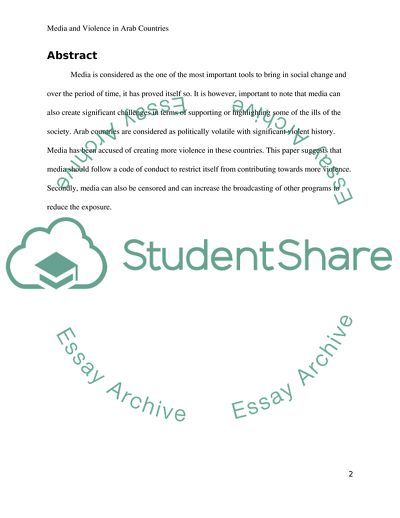Cite this document
(How can we stop the media from creating violence and aggression within Research Paper, n.d.)
How can we stop the media from creating violence and aggression within Research Paper. Retrieved from https://studentshare.org/english/1789528-how-can-we-stop-the-media-from-creating-violence-and-aggression-within-arab-countries
How can we stop the media from creating violence and aggression within Research Paper. Retrieved from https://studentshare.org/english/1789528-how-can-we-stop-the-media-from-creating-violence-and-aggression-within-arab-countries
(How Can We Stop the Media from Creating Violence and Aggression Within Research Paper)
How Can We Stop the Media from Creating Violence and Aggression Within Research Paper. https://studentshare.org/english/1789528-how-can-we-stop-the-media-from-creating-violence-and-aggression-within-arab-countries.
How Can We Stop the Media from Creating Violence and Aggression Within Research Paper. https://studentshare.org/english/1789528-how-can-we-stop-the-media-from-creating-violence-and-aggression-within-arab-countries.
“How Can We Stop the Media from Creating Violence and Aggression Within Research Paper”. https://studentshare.org/english/1789528-how-can-we-stop-the-media-from-creating-violence-and-aggression-within-arab-countries.


